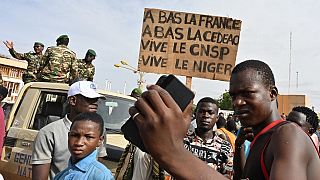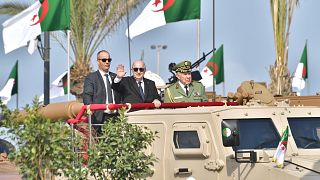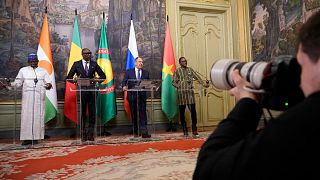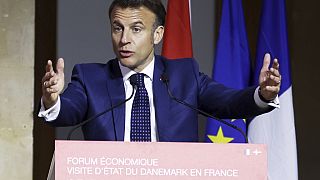Algeria
A United Nations expert on Tuesday urged Algeria to pardon people convicted or detained over their involvement in the pro-democracy protests of 2019-20 and to ease restrictions on gatherings.
The Hirak protests broke out in February 2019, forcing longtime president Abdelaziz Bouteflika to step down two months later.
The movement continued to press for deep reforms, but it waned during the Covid pandemic.
"I urge the government to abandon charges and pardon those people convicted for their involvement in the Hirak," UN Special Rapporteur Clement Voule said at the end of a 10-day mission to the North African country.
"This will also reflect recognition of Hirak as a turning point in Algeria's commitment to move forward," he told journalists.
"The government must loosen tight restrictions on assemblies and associations to bring laws and practice into conformity with the national constitution and international human rights law," added the Special Rapporteur on the Rights to Freedom of Peaceful Asssembly and Association.
Dozens of people are still detained in Algeria over links to Hirak or human rights activism, according to the National Committee for the Release of Detainees.
In February the Council of State, the country's highest administrative court, confirmed the dissolution of leading rights group Youth Action Rally which had been at the forefront of the Hirak protests.
It also suspended the Democratic and Social Movement, which was also involved in the pro-democracy movement, and ordered the closure of its premises.
Voule called on Algeria to "address the climate of fear caused by a string of criminal charges" against individuals and organisations "under overly restrictive laws, including anti-terrorism legislation contrary to Algeria’s international human rights obligations".
The UN rapporteur also sought the repeal of an article of the penal code and 2021 amendment that broadened the definition of terrorism.
Since then, the authorities had invoked that article to prosecute activists and journalists for crimes linked to terrorism, according to non-governmental organisations.
"Algeria must guarantee... the right of its population to assemble and associate freely, to exchange views and ideas and defend specific interests, including in collaboration with partners within and outside the country," Voule said.
He will present a report to the UN Human Rights Council in June 2024.











Go to video
France expels 12 Algerian officials amid diplomatic tensions
00:40
Tebboune and Macron commit to enhancing bilateral cooperation between Algeria and France
01:04
Abdelmajid Tebboune sworn in for a second term as Algeria's president, after court confirmed victory
Go to video
Algerian opposition candidates legally challenge provisional results of presidential polls
01:05
Algeria president joins challengers in criticising poll irregularities
01:16
Provisional voter turnout nears 50% in Algeria's presidential poll